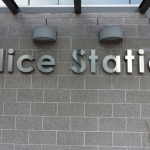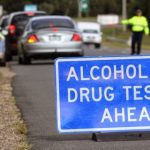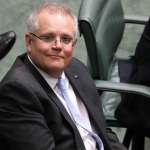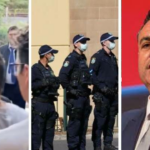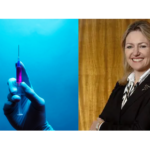NSW Police Enabled Gay Hate Murders
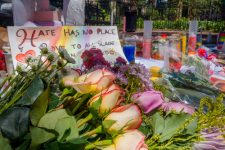
It was well known during the last three decades of the twentieth century that violent attacks were regularly being perpetrated upon members of the Sydney LGBTIQ community – especially gay men and trans women.
ACON, then the AIDS Council of NSW, kept records of these gay hate incidents, which at their peak amounted to more than 20 a day.
The majority of these crimes weren’t reported to police, as it was common knowledge that officers would likely neglect to properly investigate the incidents. The indifference of the force created an environment which enabled perpetrators to continue attacking vulnerable people with impunity.
Research later carried out by former NSW police gay and lesbian liaison officer Sue Thompson and criminologist Stephen Tomsen identified 88 deaths across our state between 1976 and 2000 that are suspected of being gay hate-related homicides.
An internal review
In response to widespread media attention to the findings of the research in 2013, NSW police launched Operation Strike Force Parrabell two years later to review the investigations of these deaths, in an attempt to deal its past failings.
NSW police released its final report on 27 June. Of the cases reviewed, officers determined there was enough evidence, or suspected evidence, indicate that 27 of these deaths were gay hate-related homicides.
But, while LGBTIQ advocates and representative bodies have welcomed the report as a step in the right direction, they point to the need for an independent review process, rather than having police simply investigating their own.
Discrepancies in findings
ACON released its own report into these historical crimes on 28 May. In Pursuit of Truth and Justice: Documenting Gay and Transgender Prejudice Killings in NSW in the Late 20th Century highlights a number of failings in the NSW criminal justice system of the time.
ACON chief executive Nicolas Parkhill pointed out that his organisation’s investigation found that at least 50 percent of these cases “had an aspect of homophobic or transphobic bias,” compared with the 30 percent identified by the NSW police strike force.
An independent academic review of the Strike Force Parrabell report was also carried out by Flinders University. And Mr Parkhill explained that despite having reviewed the same data as police, the academics “landed on different bias-related findings for a number cases.”
“Strike Force Parrabell also attributes a singular motive of robbery to a large number of cases,” Mr Parkhill told Sydney Criminal Lawyers®, “whereas ACON takes a broader view as to what shaped the violent behaviour of a number of assailants.”
According to Parkhill, “many young assailants saw gay men as soft targets and therefore went to well-known gay beats,” and this should be considered when determining a bias motive. “In some cases, robbery was clearly opportunistic, or an after-thought having already killed the gay man.”
The Parrabell findings
Of the 88 cases that researchers suspected could have a gay-hate motivation, the Strike Force Parrabell report found that 63 had been solved and 23 remained unsolved, while 2 were not reviewed by the investigation.
Of the 86 cases that were reviewed, 27 murders were confirmed to have, or likely to have, a gay-hate bias behind them. Five of these cases remain unsolved murders. A further 25 cases were found to have insufficient evidence to make a determination.
Unexplained suicides
The tragic death of Scott Johnson at North Head, south of Manly, in December 1988 was one of the cases on the list. However, it was not reviewed as it was under a new coronial investigation. And the third coronial inquiry into his death finally determined that it was a gay-hate crime last November.
At the time, NSW police were quick to deem Johnson’s death a suicide. A number of other cases on the list were also put down to suicides or accidents and were accompanied by inadequate police responses.
At the initial inquest into the death, former detective Doreen Cruickshank told the court that the area where the 27-year-old had fallen to his death wasn’t a gay beat. This was despite North Head being a well-known place for gay men to meet.
And the coroner at the first inquest also determined that Johnson had taken his own life, which highlights the broader failings within the criminal justice system at the end of last century.
Room for improvement
The Parrabell report made 12 recommendations, which included a policy of investigative open-mindedness to motive, revised bias crime indicator tools, ethical and culture training with an emphasis on LGBTIQ experiences and ongoing improvements to ensure electronic case file archiving.
Mr Parkhill said that most of the recommendations can be “summarised as reinforcing existing processes, policies and training.” Although, he did point to the system for the early identification of bias crimes and an expanded Gay and Lesbian Liaison Officer (GLLO) program as encouraging.
“ACON supports the expansion of the GLLO program given its benefits to the LGBTI community,” he made clear. “However, a review – involving LGBTI community members and organisations – is strongly urged by ACON to enhance the program’s effectiveness.”
The recommendation for a revised system to assist frontline officers to identify bias crimes is also supported. Although, Mr Parkhill stressed that this needs to be coupled with a strengthening of the Bias Crime Unit “to more fully respond to the needs of LGBTI community members.”
The ACON report actually recommends that a further independent inquiry “into the various arms of the criminal justice system” at the time of these incidents be carried out. And Mr Parkhill has raised concerns about the ability of police to “objectively review themselves and their practices.”
Acknowledging past wrongs
ACON is also calling for NSW police to apologise to the LGBTIQ community for “the inadequate or slow responses to violence throughout this period.” NSW police has said it is considering issuing an apology to the victims of gay-hate crimes and their families.
We believe that a formal apology “will go a long way in healing the grief and trauma experienced by victims, families and other members of our communities,” Mr Parkhill concluded.



